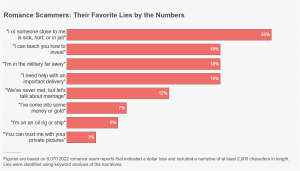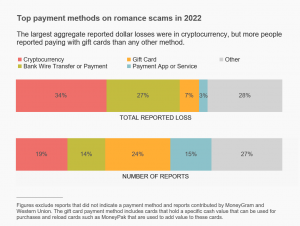Meeting someone on social media, a dating website, or an app can be challenging to determine if their profile is genuine.
Meeting someone on social media, a dating website, or an app can be challenging to determine if their profile is genuine.
In the web-connected universe, many people fall prey to online scammers. These professionals search obituaries for widows, dating sites, or social media profiles for their next victims.”
SAN DIEGO, CALIFORNIA, UNITED STATES, September 27, 2024 -- If you've met someone on social media, a dating website, or an app, it can be challenging to determine if their profile is genuine. Posing as military servicemembers stationed overseas, oil rig/overseas workers, or large equipment dealers is a common tactic scammers use.— Axios Investigations Firm, CEO
Here’s how to identify a fake profile: Many people are calling Axios Investigations Firm to verify whether the person they met on LinkedIn, dating sites, or social media platforms is real.
According to the Federal Trade Commission (FTC), online scammers have amassed over 1.3 billion in theft to unknowing individuals. We have helped many avoid losing thousands of dollars because they were prudent to reach out to us first.
The Short Answer-
If your online friend asks for money for any reason, they are a scammer. Scammers meticulously craft their posts and profiles to appear authentic, often stealing actual servicemembers’/legitimate professionals' names and photos. They may engage in convincing conversations that quickly escalate to declarations of love or marriage. However, they will always have excuses for not meeting in person or on video, ultimately leading to urgent requests for money.
Signs of a Scammer Posing as a Military Servicemember or any other trade:
Duplicate Photos on Multiple Profiles: only a few photos are posted on their profiles within a few days or months apart.
Perform a reverse image search of their profile picture to see if it appears on multiple platforms.
Search their name online along with terms like “scam” and “imposter” to check for inconsistencies.
Requests for Money:
That is a red flag if they begin asking for money shortly into the relationship. Also, the scam bells should ring if they ask for money through gift cards, wire transfers, payment apps like Apple Pay, Western Union, CashApp, PayPal, Zelle, or cryptocurrency. Usually, their reasons tend to fall in the range of the need to get a plane ticket home, buy equipment for work, or purchase a large item to assist with their business.
Do not respond if they ask you to communicate only on platforms such as WhatsApp or Signal. These sites are encrypted, and it is hard to identify who they are and track them. These are popular apps for scammers.
What to Do If You Suspect a Scammer-
Cut Off Contact:
Immediately cease all communication with the suspected scammer.
Report the Scam:
Inform the social media platform, dating website, or app where you met the individual.
Report the incident to the Federal Trade Commission (FTC) at ReportFraud.ftc.gov.
Spread Awareness:
Share this information to alert your friends and followers about this common scam, helping others avoid falling victim.
If your online friend asks for money for any reason, they are a scammer. Scammers meticulously craft their posts and profiles to appear authentic, often stealing actual servicemembers’/legitimate professionals' names and photos. They may engage in convincing conversations that quickly escalate to declarations of love or marriage. However, they will always have excuses for not meeting in person or on video, ultimately leading to urgent requests for money.
Signs of a Scammer Posing as a Military Servicemember or any other trade:
Duplicate Photos on Multiple Profiles: only a few photos are posted on their profiles within a few days or months apart.
Perform a reverse image search of their profile picture to see if it appears on multiple platforms.
Search their name online along with terms like “scam” and “imposter” to check for inconsistencies.
Requests for Money:
That is a red flag if they begin asking for money shortly into the relationship. Also, the scam bells should ring if they ask for money through gift cards, wire transfers, payment apps like Apple Pay, Western Union, CashApp, PayPal, Zelle, or cryptocurrency. Usually, their reasons tend to fall in the range of the need to get a plane ticket home, buy equipment for work, or purchase a large item to assist with their business.
Do not respond if they ask you to communicate only on platforms such as WhatsApp or Signal. These sites are encrypted, and it is hard to identify who they are and track them. These are popular apps for scammers.
What to Do If You Suspect a Scammer-
Cut Off Contact:
Immediately cease all communication with the suspected scammer.
Report the Scam:
Inform the social media platform, dating website, or app where you met the individual.
Report the incident to the Federal Trade Commission (FTC) at ReportFraud.ftc.gov.
Spread Awareness:
Share this information to alert your friends and followers about this common scam, helping others avoid falling victim.
Stay Vigilant and Protect Yourself
Scammers are adept at creating convincing profiles and stories. You can protect yourself from falling prey to their schemes by staying informed and cautious. If someone you’ve met online starts asking for money, remember: it's a scam.
Scammers are adept at creating convincing profiles and stories. You can protect yourself from falling prey to their schemes by staying informed and cautious. If someone you’ve met online starts asking for money, remember: it's a scam.





Comments
Post a Comment